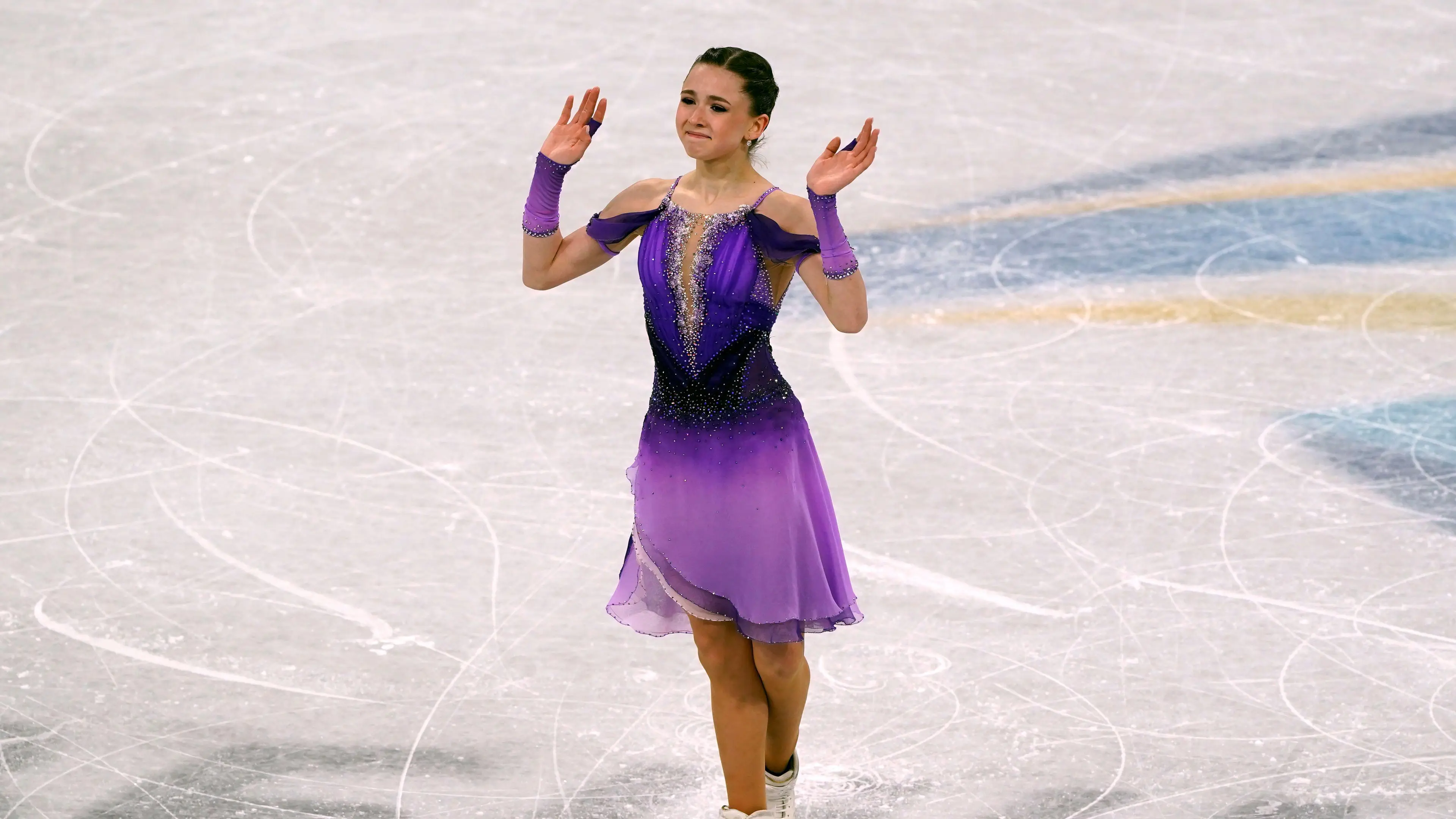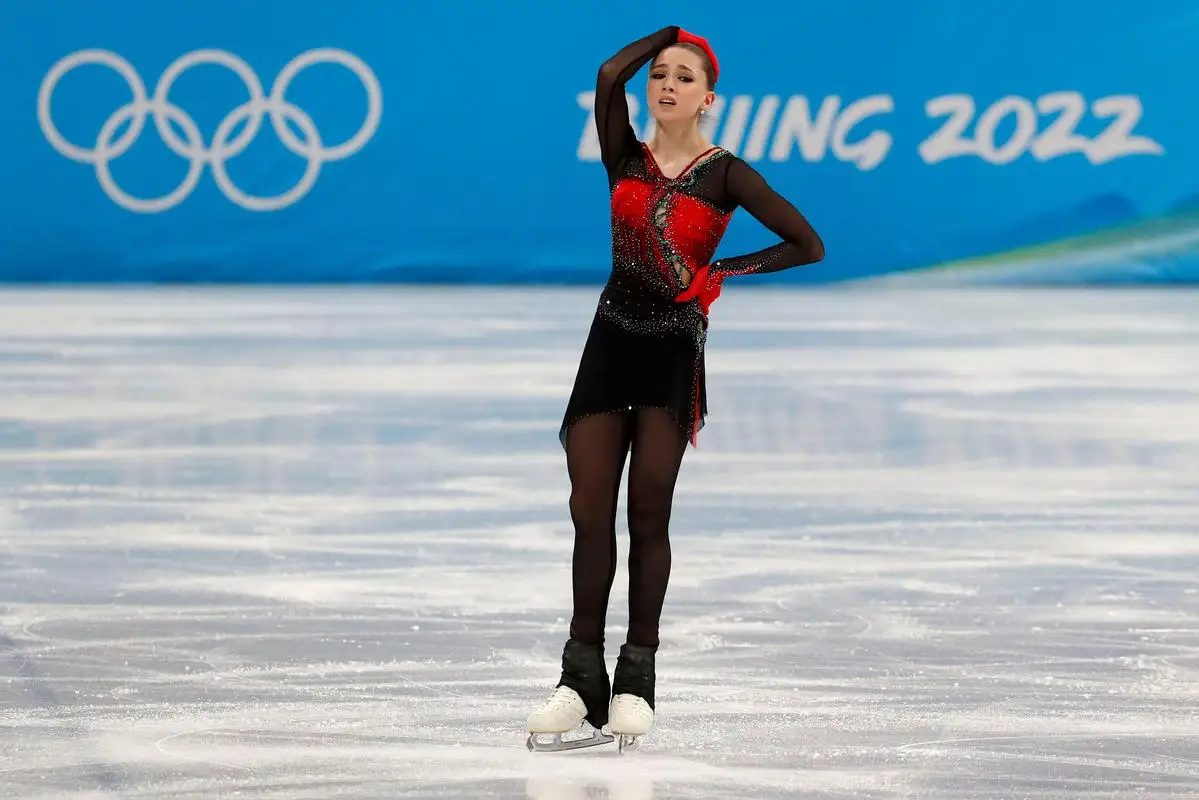
The Russian athlete embroiled in a doping controversy failed her drug test before winning her Olympic gold medal, it has been revealed.
Kamila Valieva hit the headlines this week when it was revealed she had tested positive for the banned substance Trimetazidine, which is typically used to treat chest pain.
The 15-year-old is a part of the Russian Olympic Committee (ROC) team that claimed gold in the figure skating event on Monday (7 February).
It has now been revealed that the teenager tested positive for the drug on 25 December 2021 during Russia's annual Figure Skating Championships in Saint Petersburg, as per the Daily Mail.
Advert
Despite Valieva's positive result, the country's anti-doping agency cleared her to compete at the Winter Olympics in Beijing.

However, experts in Sweden only reported on the sample on Tuesday (8 February), after Valieva had claimed her gold medal.
Following the news, she was suspended by her federation. But after she appealed the decision, she was later cleared to compete again.
She will now be able to go for another medal, this time in the Women's Single Skating in which she is an overwhelming favourite to win gold again.
However, the International Testing Agency (ITA) is contesting the decision to allow Valieva to return to the games.
A spokesperson for the ITA said: "Under the World Anti-Doping Code, the World Anti-Doping Agency (WADA), the International Skating Union (ISU), RUSADA and the IOC have a right to appeal the decision to lift the provisional suspension before the Court of Arbitration for Sport (CAS).
"The IOC will exercise its right to appeal and not to wait for the reasoned decision by RUSADA, because a decision is needed before the next competition the athlete is due to take part (in Women Single Skating on 15 February).
"Following the delegation of the IOC’s anti-doping program in relation to the Olympic Games to the ITA, the ITA will lead the appeal before CAS on behalf of the IOC."
Under World Anti Doping Agency's (WADA) rules, it is obligatory that the athlete who tests positive for banned substances are publicly named.
With Valieva being under 16, she is considered by WADA to be a 'protected person' and should have remained anonymous.
However, the ITA said it was forced to release a statement on the matter after it was widely reported.

TMZ, which increases blood flow to the heart, has been banned by WADA since 2014 and the US Anti-Doping Agency says it can improve an athletes performance in endurance events.
However, Vasily Konov, a journalist at Russian sports channel Match-TV, said the drug is not performance enhancing in the traditional sense and that it wouldn't help her win.
Writing on social media, Konov said: "The drug trimetazidine does not help an athlete in any way. At all. It was found in one single sample in December. A minuscule amount. Nothing in her samples before or since.
"There is no doping in the conventional sense. No! This cardiac drug has no impact on ... performance. Now leave Kamila in peace."
LADbible has contacted the ROC for comment.
Topics: Winter Olympics, China, Russia, Drugs